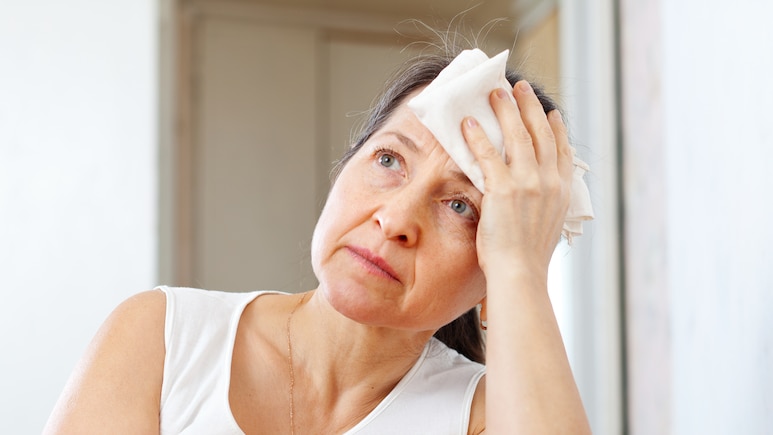
Menopause can usher in a host of disruptive symptoms, including hot flashes, night sweats, and sleep problems. For decades, hormone therapy has promised relief. Yet for many women, uncertainty and fear still cloud the decision to try it.
The treatment was once prescribed routinely, but a 2002 study raised alarms about increased risks of breast cancer and blood clots. Concerns lingered even though later studies showed the benefits of today's hormone therapies outweigh the risks for many women.
“There is still a lot of confusion and a lot of fear,” said Grayson Leverenz, a 50-year-old from Durham, North Carolina. After much hesitation, she started therapy last year. “I just feel like myself again," she said after noticing improvements in sleep, anxiety, and hot flashes.
Doctors say hormone therapy is a great option for many, but it is not one-size-fits-all. They say that it's important to understand the nuanced reality of these treatments before deciding what's best. It treats symptoms that can arise when menstruation winds down and ends, causing levels of estrogen and progesterone to drop very low.
Vaginal estrogen therapy, a low-dose option, is another treatment considered safe for women with vaginal dryness. Systemic therapy - pills, patches, sprays, gels, or rings - delivers higher hormone levels to ease hot flashes and other body-wide symptoms.
Jennifer Zwink, a nurse in Castle Rock, Colorado, began using an estrogen patch more than a year ago and also has an IUD, which gives her progesterone. The treatment has relieved her hot flashes, improved her sleep, and eased her joint pain and bloating.
“It's not like a 100% magic wand,” she said. “But it definitely has made a significant difference.”
The Menopause Society reports that hormone therapy can lower the risk of cardiovascular disease if started within 10 years of reaching menopause. It may even reduce the risk of Type 2 diabetes and maintain bone density for longer. Still, both estrogen-only and combined therapies increase stroke and clot risks—though patches, gels, or sprays may be safer than pills.
Doctors generally recommend limiting use to seven years for estrogen and three to five years for combined therapy. Women with prior strokes or certain conditions may be advised against it.
Most of the physicians at the recent expert panel meeting convened by the U.S. Food and Drug Administration (FDA) prescribe the hormones or are involved with a pharmaceutical industry campaign opposing the warning label. A letter signed by 76 doctors and researchers argues that “removing label warnings without adequate scientific assessment puts patients at risk,” and asked the agency to hold an advisory committee meeting with a public hearing before making any changes.
In the meantime, doctors urge people to be wary of misinformation, like false claims on social media posts that hormones will prevent dementia and ensure a healthy old age.
Dr Nanette Santoro, an OB-GYN at the University of Colorado, pointed out that hormone therapy is not a guarantee of long-term health or longevity. New alternatives, such as fezolinetant (Veozah) for hot flashes, gabapentin, and non-hormonal moisturizers, offer additional options.
As the debate continues, experts recommend regular exercise and a healthy diet to manage menopause symptoms.
Track Latest News Live on NDTV.com and get news updates from India and around the world

